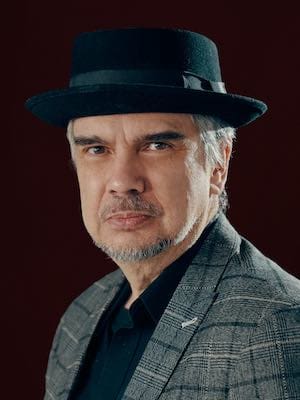I’ve returned from Indonesia; and yet, my experience there continues to inform my theological thinking.
Shortly before I left, I spent the day in one of the city’s poorest and most populated neighborhoods located on the banks of the Code River.
Here, beside a polluted waterway, are the small dwellings where the poor live. I visited home businesses and spoke to individuals making shoes, sandals and pouches from their porches or living rooms.
The houses were so cramped that I could foresee the day when an earthquake would strike and claim many lives.
When we asked why the poor built their houses on shifting sand, the answer was that there was no place else for them to go.
As I walked along the river, I was struck by the multiple activities I was witnessing. After a while, I had to simply sit down on the riverbank to properly take in the sights and smell.
As I surveyed the river, I was struck by the trash that floated by: plastic and paper containers, dirty diapers and cans, to name but a few items.
On the opposite bank were banana and rice fields from which pesticide-filled water flowed into the river.
As I gazed upon the river, I noticed a slew of other activities. Men panned not for gold, but for pebbles that could be used to make concrete; others fished, attempting to catch that evening’s dinner.
Old women struggled under bundles of wood, no doubt a day-long activity of finding enough fuel to boil polluted water and cook dinner.
Not far from them, small children were playing in the filthy water that contributes to illness, if not death.
It was at that moment that I noticed two women crossing the river. I was moved to take their picture. One was advanced in years; the other seemed middle-aged.
I watched these two women scurry down the opposite bank and walk through the waist-high river to my side, where they more than likely lived.
They each carried bundles of banana leaves, probably to wrap tempe or rice in order to sell them to the public or local food vendors. They, along with everyone else in this neighborhood, were working hard to survive.
The daily activity of the disenfranchised normalizes, naturalizes and legitimizes the activities carried out by the poor struggling to survive.
The two women crossing the river, partaking in daily actions, confer upon their gendered bodies oppression while trapping them in oppressive cycles.
To focus on the daily existence of the marginalized – as mundane as crossing a river with a bundle of banana leaves – is to critically analyze the good and bad that shapes and forms the daily life of the poor.
More than just analysis, the everyday – pregnant with God’s presence – has the potential to become the catalyst for structural changes, serving as the foundation upon which all liberative, ethical praxis is determined and implemented.
While Euro-Americans usually conduct ethical analysis by centering the discourse on the abstract, if not the aesthetic, those existing on their underside focus the discussion on implementing praxis to deal with particular ethical dilemmas that unfold in the everyday.
For ethical discourse to be relevant, ethics must be contextualized in the everyday.
Because the God worshipped became human, enfleshing Godself, then and now, in the everyday lives and experiences of the dispossessed, the salvific nature of God can be experienced in daily struggles.
God’s presence and accompaniment in the everyday makes whatever occurs in daily life the subject and source for all ethical reflection.
The trials and tribulations of these two women crossing the river become the starting point for any type of indigenous ethical framework.
Grounding ethical reasoning in the everyday subverts the normalized direction of the discourse from the center toward the periphery.
The everyday brings the margins to the center, and in the process challenges those accustomed to setting the parameters of ethical conversation.
The primary source for doing ethics becomes the lived, everyday experience; specifically the experience of women as the two I spied crossing the river.
It is the everyday that provides these two women with an “epistemological privilege.”
This privilege is based on their ability to know how to live and survive in both the center and periphery of society, unlike the dominant cultures, which generally fail to understand the marginalized experience.
In short, any ethical framework that fails to be rooted in the everyday of the marginalized falls short of being any use to anyone.
Miguel A. De La Torre is professor of social ethics at Iliff School of Theology.
Professor of Social Ethics and Latinx Studies at Iliff School of Theology in Denver, Colorado, and a contributing correspondent at Good Faith Media.

